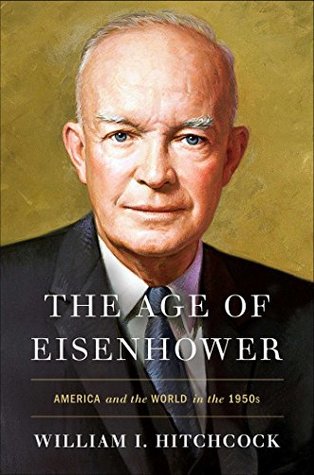More on this book
Community
Kindle Notes & Highlights
In the hour of crisis Ike wanted a disciplined, well-trained staff and system already in place, ready to work.
Eisenhower had that rarest of gifts in politics: he brought Americans together.
“Humility must always be the portion of any man who receives acclaim earned in the blood of his followers and the sacrifices of his friends.”
“We are ready, in short, to dedicate our strength to serving the needs, rather than the fears, of the world.”
There would be many sincere words of peace during his presidency, but Ike was always preparing for war.
By late August the president and Congress had hammered out the Communist Control Act of 1954, which outlawed the Communist Party in America. The CPUSA was not in fact a “party,” Congress asserted, but a criminal conspiracy. Furthermore labor unions that contained any communists would be stripped of their legal standing. The Senate passed the bill 79–0, and the House could find but two nay votes against this assault on the political freedoms of American citizens to organize.
Eisenhower’s CIA went way beyond intelligence analysis; it engaged in global propaganda, foreign sabotage, subversion, economic warfare, coups d’état, and political assassination. Not until the mid-1970s, when congressional investigations revealed the scale and scope of these activities, was any real restraint placed upon the agency.
Eisenhower, who warned later generations about the dangers of the military-industrial complex, did so much to build it.
“propaganda, economic warfare, preventive direct action, including sabotage, anti-sabotage, demolition and evacuation measures, subversion against hostile states, including assistance to underground resistance movements, guerillas and refugee liberation groups, and support of indigenous anti-communist elements in threatened countries of the free world.”
“the Director of Central Intelligence shall be responsible for protecting intelligence sources and methods from unauthorized disclosure, the Agency shall be exempted from . . . any other laws which require the publication or disclosure of the organization, functions, names, official titles, salaries, or numbers of personnel employed by the Agency.”
Indeed Kermit Roosevelt, the chief CIA operative in Tehran, titled his memoir Countercoup precisely to suggest that it was Mossadeq who was the usurper: the United States merely assisted the shah and the Iranian Army in restoring power to the nation’s rightful rulers.
Eisenhower did not lead the nation toward civil rights reform, but he could sense which way history was moving and did not wish to be left behind.
a black woman named Autherine Lucy had sought admission to the graduate program in library science.
But America had made its choice and would uphold the integrity of the law of nations. “We cannot proclaim this integrity when the issue is easy—and stifle it when the issue is hard.” Law must govern nations just as it must govern free peoples.
Eisenhower chose an honorable path, one that kept his reputation for decency and integrity intact. Yet the price of that noble act was a dramatic worsening of the cold war. It is fair to ask if the price was too high.


